In the hit-driven world of games, where massive companies destroy and rebuild themselves to line up behind proven trends, there’s one concept you can always bank on: nostalgia for a bygone age. For a layperson, it might seem easy for a massive company with a trove of beloved franchises to turn back the clock and port yesterday’s favorites to the current-day consoles for an easy revenue stream. But according to Cyrille Imbert, the CEO of Dotemu—a small French company that specializes in ports, sequels, and remasters of older games—the process can present all sorts of unexpected complications.
“When you compare what we do to making an original game, there are a lot of positives, especially from a business perspective,” Imbert says. “However, there are a lot of aspects that I don’t think people are aware of. That’s why when we have random teams approach us and say, ‘Hey, we really want to remaster X, or do a sequel to X,’ if they don’t have the knowledge of the property, if they don’t know exactly what they want to do with it, it’s pretty much an automatic no.”
Prior to the past few years, Dotemu was known for its technical expertise in bringing classic games to modern consoles, from shoot ‘em ups like R-Type to a handful of Final Fantasy titles. However, it was 2017’s Wonder Boy: The Dragon’s Trap, a full-blown remake of a beloved game for the Sega Master System, that pushed the company in the direction of making its own original games. Now, as Imbert’s company cranks away with collaborators on Streets of Rage 4—an official sequel to one of its biggest catches to date—he fondly recalls the path that led him to the top of one of the most trusted names in retrogaming.
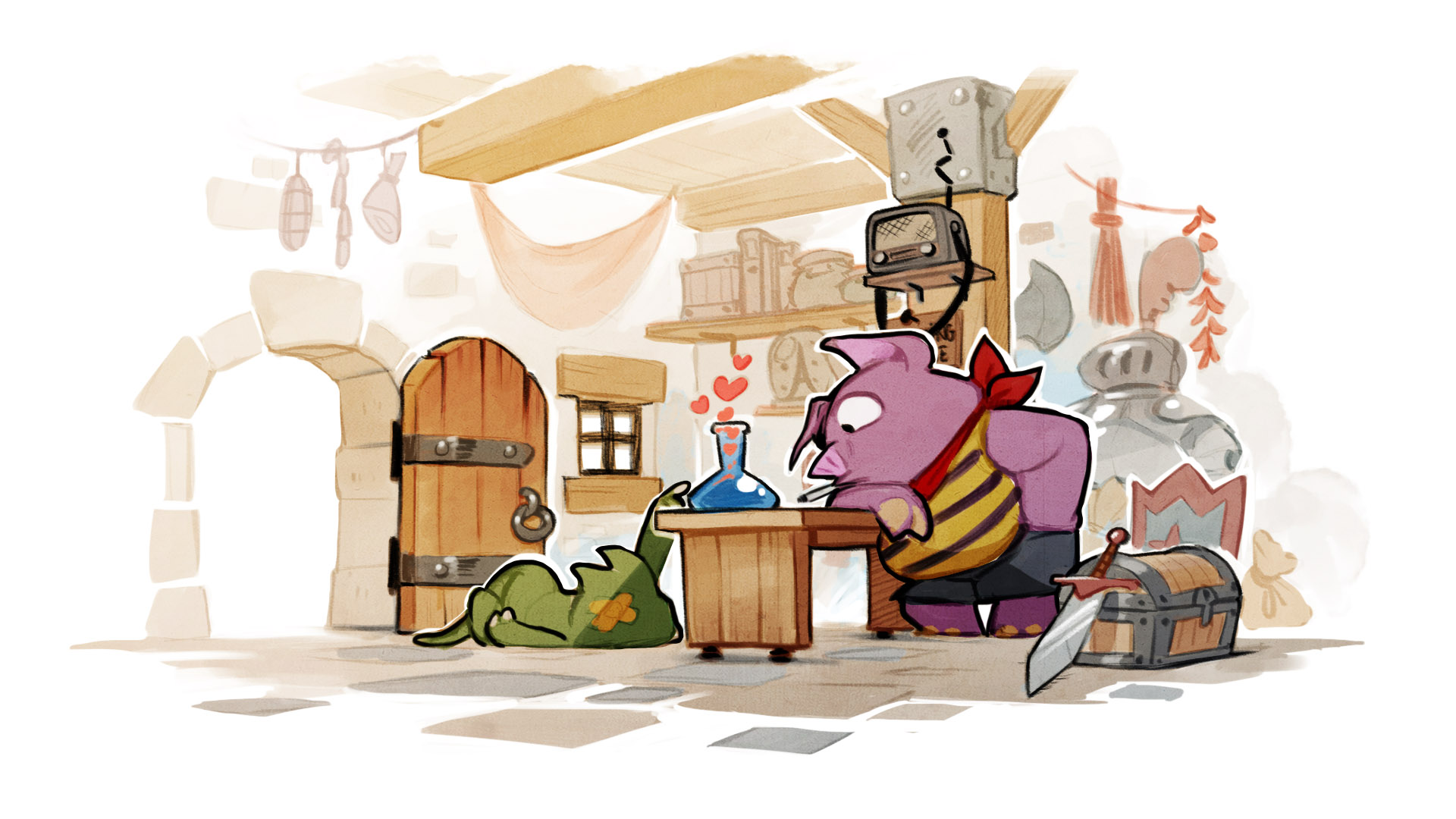
Credit: Dotemu
Though Imbert grew up loving and appreciating games, he never really considered the medium he adored as a viable career for himself; from the outside, the industry seemed comprised only of talented designers, artists, and other creatives, all roles that he never quite envisaged for himself.
Instead, he always saw himself as an entrepreneur like his father, who had spent an entire career in France’s IT sector. As Imbert began to approach the end of his business courses around 2010, he told his mother that he would likely move abroad for the foreseeable future for the sake of his job prospects. She responded by searching desperately for a program that would keep him in his native France, and eventually found one: an MBA specializing in “video game management.” Suddenly, the vast fortress of the video game industry didn’t seem so impenetrable after all.
“She really wasn’t happy with me leaving, let’s just put it that way,” Imbert says, laughing. “But when she found this program, it was like a dream come true. I couldn’t believe that I didn’t know about it already. I wanted to work in games on the business side, and this was a clear path to that. It was an amazing feeling.”
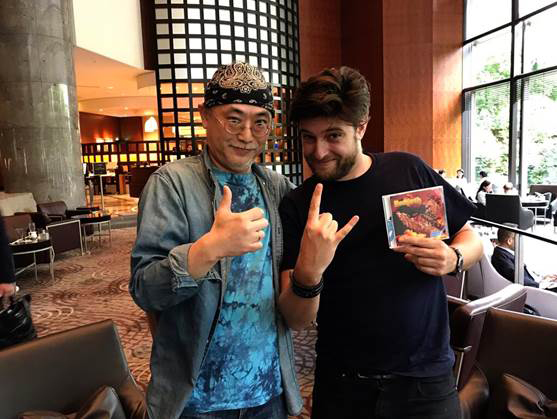
Courtesy Dotemu/Cyrille Imbert
By his own recollection, Imbert took to the program well, scoring an internship with mega-publisher Ubisoft as a brand manager for the Assassin’s Creed series. But while he enjoyed adding some triple-A experience to his resume—and working long, hectic days for the privilege—in the back of his mind, he knew that working at a big company wasn’t the future he wanted, at least in the short-term. Ever the entrepreneur, he wanted to run his own firm, just like his father before him.
“Working at Ubisoft was very interesting, but also very intense. It’s a hard company to work for because they give you a lot to do and expect a lot, but you learn a lot too. In the end, the pressure and long, long days were very hard.… I knew that right after I graduated would be a unique opportunity to try to run a small business for a while,” he says. “I felt that it would be easier to learn the lessons by doing that instead of working at a big company like Ubisoft. While I liked my time there, I was doing marketing, and I wanted to be on the production side, instead of selling someone else’s creative vision. It seemed like the right move at the time, so we went ahead with it.”
During his studies, Imbert met and partnered with a fellow student named Kevin Goyon on several projects, and the two of them decided to start their own business after graduation. Throughout their classes, they returned to the same idea again and again, which their teachers deemed commercially viable: a dating sim game for mobile, based on the dubious world of “pick-up artistry.” While Imbert admits that time and sunlight have revealed the PUA community as a haven for creeps and misogynists, in the early 2010s it seemed like an underserved niche that no one had managed to tap quite yet.
“While I definitely think they’re disgusting now, the basic stuff really helped me and Kevin with our self-confidence,” he says. “Kevin has often told me that he wouldn’t have met his current girlfriend without at least some of that, and now they’re about to have a baby together. At the time, it seemed like a really good idea, and everybody was agreeing with us about it.”
In late 2011, Imbert and Goyon founded a studio, Chouquette Games, to spearhead this new venture, staffing up to six full-time employees. Over the next two-and-a-half years, the company struggled to produce its first game, alternating between the momentary triumphs and the litany of obstacles that haunt almost every first-time creative venture. Since Imbert had no management experience outside of the classroom, running a full production out of his apartment became a trial-by-fire for him. While Become a Pickup Artist did eventually come out in mid-2013, it never caught on with the community that it purported to represent, and Imbert describes it as a commercial failure. Moreover, it’s no longer available on any platform—the only remnants of its existence are a brief trailer and a savage write-up on Jezebel.
“It was definitely a failure, but it was a success in the sense that we got the experience that we wanted,” Imbert says. “I had to set up the meeting room, which was just a table in my apartment, every day, and people were coming in to work. It was very stressful, and I learned a lot, along with my partner. I pretty much learned everything there was to know about making a game, the way an artist thinks versus a designer, how to manage a team, how to bring it to completion, making deals with external partners. It would be very weird to make that game today, but I’m still proud of it, because what it meant to our careers. We proved to ourselves that we could actually make something from A to Z, and even if it was a failure, at the time, that seemed more important.”
After the game failed to set the App Store’s tills alight, the studio churned out some work-for-hire projects for low-rent magazines and the like to try to pay the bills. Soon enough, however, Imbert grew frustrated with that direction and started to apply for producer jobs at major studios, like Ubisoft and Gameloft. Before he could take one of those positions, however, the situation changed. As it happened, Imbert’s father was planning to sell a business he owned, and he was impressed enough with Imbert’s own efforts with Chouquette to invest in his next venture, but only if the pitch was compelling enough. Since he had just spent years trying to build his own company, Imbert suggested that they invest in an existing studio open to outside funding. “Even though he’s my dad, he’s not the kind of person to invest in a business just because I’m involved in it,” Imbert says, laughing. “He’s very driven and logical. It had to have real potential.”
Over the next few weeks, Imbert and his father met with a few different studios that were receptive to their offers. One of those studios stood out to both of them: Dotemu, a studio founded in 2007 by two engineers that made its reputation bringing forgotten old-school gems to modern-day consoles. As a longtime games enthusiast, Imbert recognized many of his favorite games in Dotemu’s back catalog, but it was the company’s unique business model that ultimately sealed the deal.
“The owners, Xavier [Liard] and Romain [Tisserand] were proud of what they’d done, but they were ready to move on to something new,” Imbert says. “When you look at games from a business perspective, the fact that they were able to work with names that people knew—that saves you so much upfront cost, because you don’t have to explain to journalists what the game actually is. That’s what really appealed to me and my dad. And I just instantly had ideas on how to push it forward.”
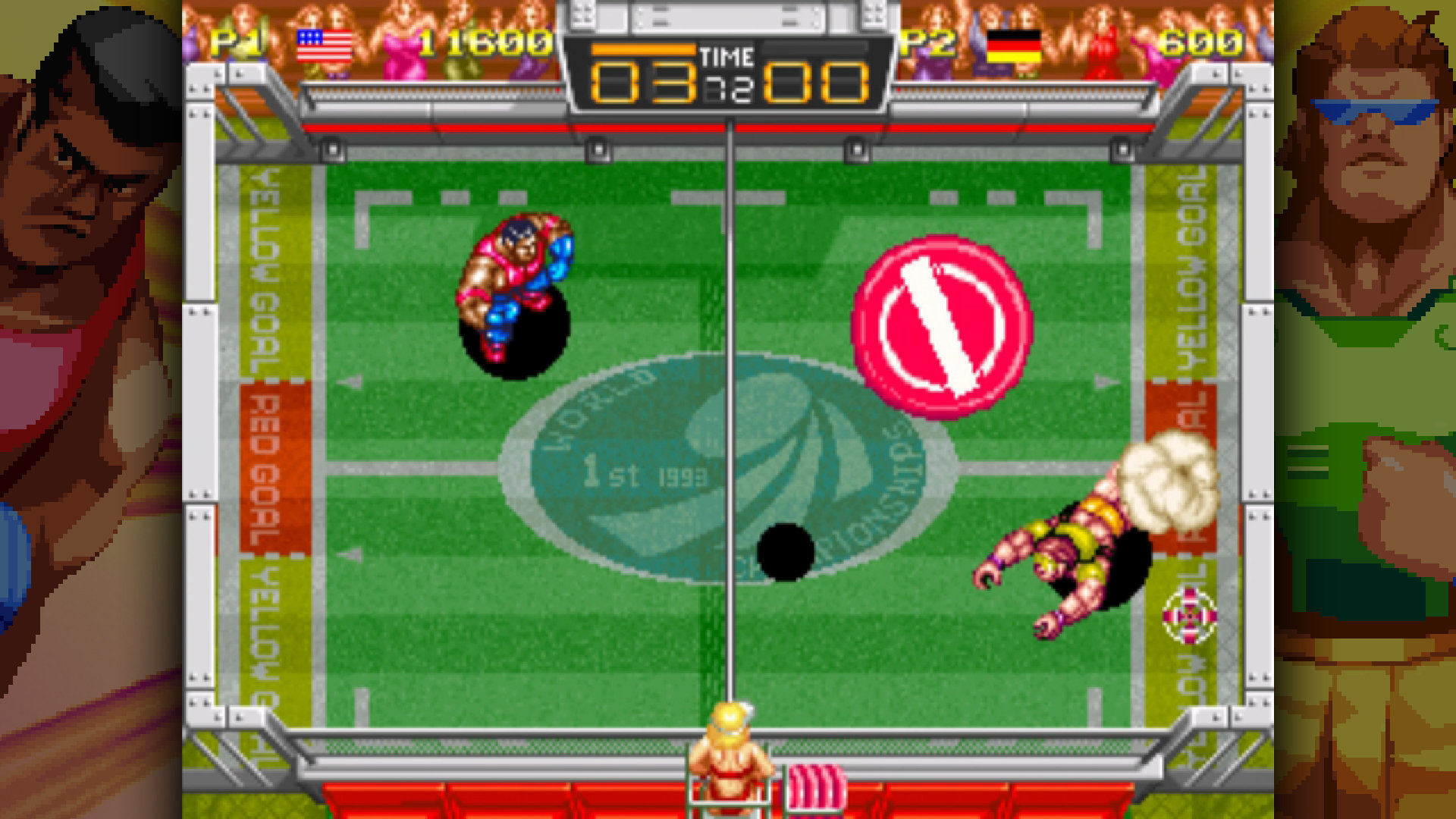
Credit: Dotemu
After a year of sorting out the details, in late 2014, Imbert took over as Dotemu’s new CEO. As he describes it, the first few weeks were a bit awkward, owing to the nature and totality of the transition. “I arrive at the company, and I’m a 26- or 27-year-old guy saying to people who had worked there for five years, ‘Hey, I’m the new boss,’” he says. “They didn’t know me, so it was weird at first, but still exciting.” As the team got to know him, Imbert says, they became receptive to many of his new initiatives.
It wasn’t so much that Imbert was trying to rebrand the company, or shunt it down an entirely new path—instead, he wanted to push the company farther down the same track that Liard and Tisserand had laid for it, and at a faster clip. Almost overnight, Dotemu started to staff up and take on more work than it ever had before, with the goal of opening doors to bigger IP-holders in order to grow the company’s profile. To make this possible, Imbert decided to focus more on remasters and remakes than on the company’s core competency of ports, which made up “a very high percentage” of its output prior to his tenure.
Imbert’s strategy was simple. Since a lot of the largest Japanese game companies are famously protective of their legacies, they’re unlikely to turn over the keys to the kingdom to an outsider. But if Dotemu could deliver a top-notch port of one of their lesser hits, they would be far more likely to greenlight a bigger project two or three years down the road. This strategy first paid off with Wonder Boy: The Dragon’s Trap, but the game came to fruition through a very different route than Imbert had assumed—one that reflects the twisting, convoluted paths that these dusty games can take before finally emerging.
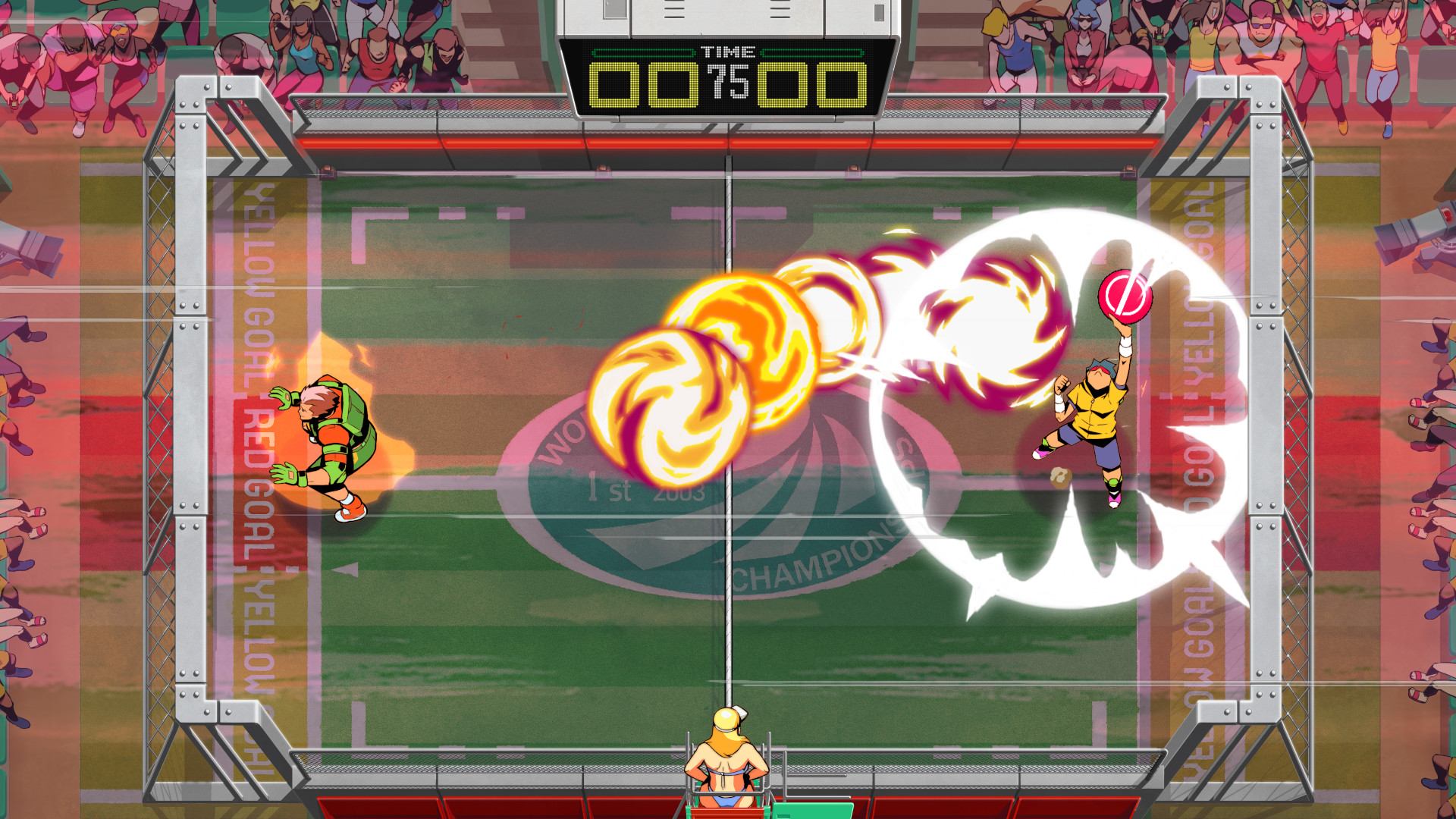
Credit: Dotemu
According to Imbert, the team behind The Dragon’s Trap, LizardCube, first approached Dotemu about making an unofficial successor to the Wonder Boy franchise around the time that Imbert started with the company. This eventually turned into a remake of 1989’s Wonder Boy 3, which shares that subtitle. Since LizardCube was working directly on the project with Wonder Boy creator Ryuichi Nishizawa and had his permission to make the game, both the developer and the publisher assumed that they were within their legal rights to release it.
Eventually, however, the team at Dotemu figured out that they’d been mistaken. While Nishizawa owns the copyright, which includes the game’s source code and design elements, Sega owned the trademark to the name Wonder Boy, which meant Dotemu had to get the publisher’s permission to actually release The Dragon’s Trap. LizardCube briefly tried to convince Imbert to simply put the game out under a different name, but those efforts fell on deaf ears. “They just weren’t going to convince me,” Imbert says. “This was our one big shot, it was very risky.… This was me testing my new strategy. It was a lot more expensive than what we had done up to that point, but I knew that the potential rewards were much greater. It showed people that we were serious about improving on these games in a very respectful but modern way, and I think that’s brought us a lot of success.”
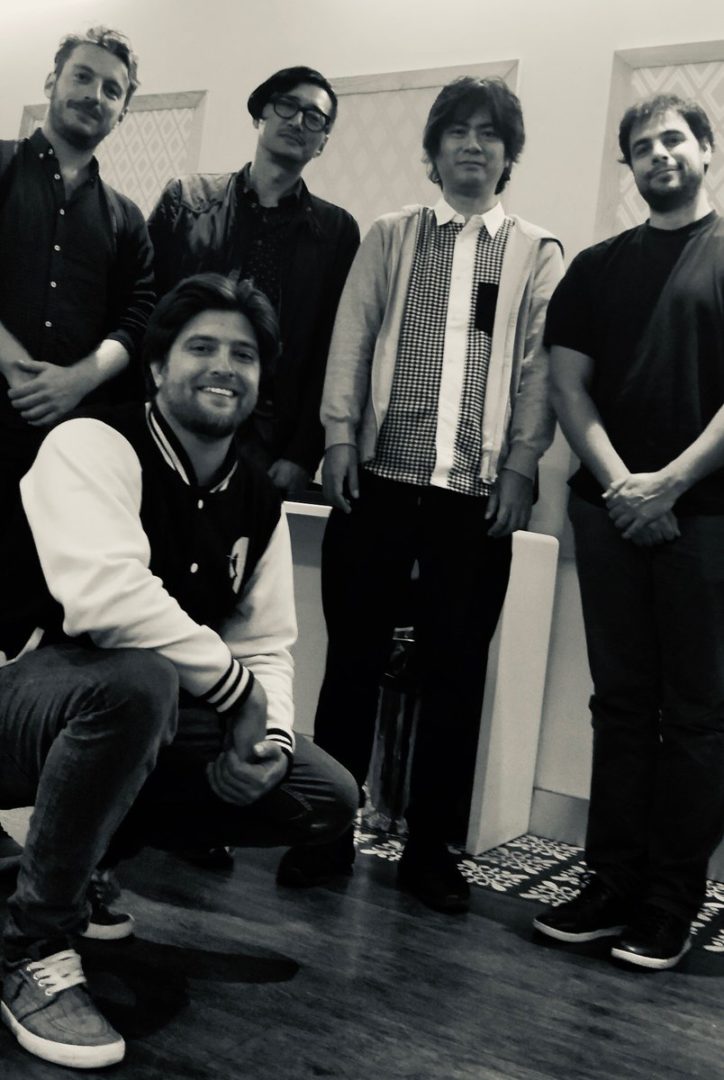
designers Motohiro Kawashima and Yuzo Koshiro, and Dotemu game designer
Jordi Asensio.
Courtesy Dotemu/Cyrille Imbert
While Sega eventually acquiesced to a deal, Imbert points to Wonder Boy in particular as a perfect example of why Dotemu’s internal investigative processes are so vital to its continued existence. “When the license is clearly owned by one actor, it’s very straightforward,” he says. “Other times, not so much. Nobody involved knew that Sega still owned the trademark. They couldn’t even remember what they had signed. But how can you expect someone to remember something they signed 30 years ago? It was all on paper, there were no emails back then. It really depends on deals made at the time.… That’s why some of these Japanese developers made their own companies in the first place, because they wanted to keep the rights to their own creations, and some publishers were very bad about how they treated IP in their contracts. It can be very complicated.”
In the process, however, Imbert and company can sometimes unearth artifacts from the hazy past, which he views as one of the perks of the job. “It can be very complex,” he continues. “There was one game where there was a guy living in Hawaii, and he was the only guy who might have the source code and the assets, and we were looking for it for months. We finally contacted him, and he said, ‘Okay, I have a bunch of boxes of CD-ROMs. I know it’s in there, I just don’t know where.’ So we just told him to send them to us, and we spent several afternoons going through each of these three boxes of 300 CDs to find the source code. In the code itself, we often find comments from developers who are just insulting everyone in Japanese… because they’re tired of working on the game. When you have a chance to meet with original team, it’s funny. Some of them just viewed it as a job, and they don’t understand why people love the games so much. The enthusiasm confuses them. It can be hard to explain at times.”
Now that the studio has fully embraced Imbert’s strategy of balancing elaborate remakes and sequels with its traditional port work, Dotemu faces a familiar dilemma several times a year: What retro classic should it resurrect next? As Imbert freely admits, friends, family, and acquaintances alike often assail Dotemu employees with pleas to reimagine their favorite games. (Full disclosure: I myself delivered an impassioned off-the-cuff speech on behalf of Shadow Hearts: Covenant. We’ll see if it took root.) Internally, however, the process is still quite informal, with staffers compiling their ideas and findings in a central document that anyone can access at any time. But while some games might seem like more of a sure bet than others, Imbert emphasizes that there’s no such thing as easy money, even in bringing back the hits.
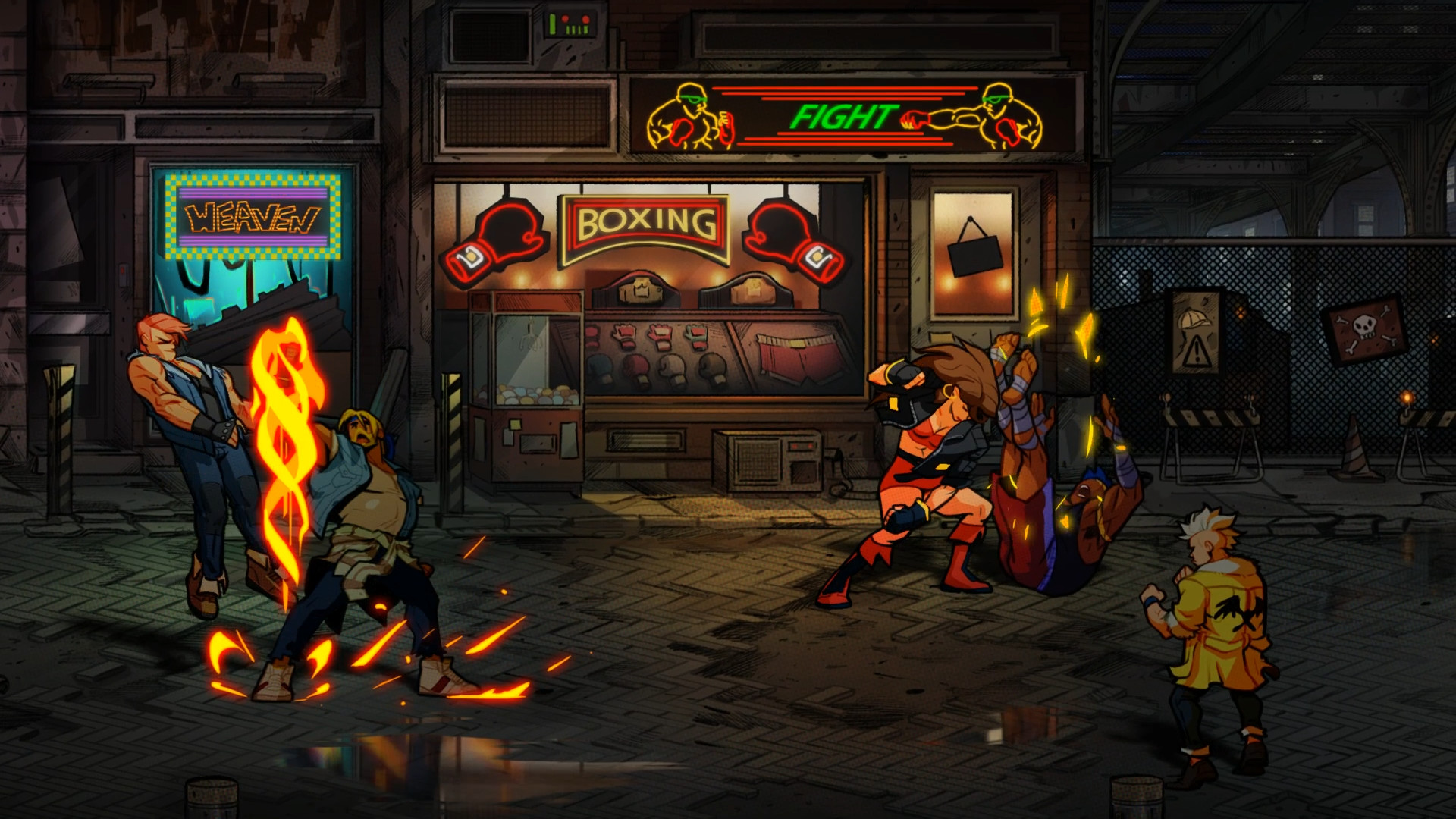
Credit: Dotemu
“We really do start on Wikipedia, to be honest,” he says, laughing. “We try to figure out, okay, who owns this, did some big publisher buy them, like Sony? Is there a big community on Facebook for this game? Does this game have a kind of aura in the gaming industry? Is this the kind of game where remastering it would be pointless, because it’s already almost perfect, like Metal Slug or the original Streets of Rage, or is a sequel a better idea? We’re a small company, so we don’t get a lot of shots if the game we release doesn’t make the fans happy. That’s our core consumer, the fan who is obsessed with the game and wants to see that remaster or that sequel, and they know the game better than anyone. If we don’t know the game even better than that person, then it won’t resonate.… Even for ports though, it’s never a matter of a couple of months. To get up to our standards, even a standard port will take six to ten months.”
While Imbert is happy to be a part of the retrogames space, which he still considers an emerging market, he personally feels that the retro and the indie gaming scenes are essentially synonymous, something he describes as both a boon and a potential hazard to the future of Dotemu. As his core demographic continues to age, and the likes of the Xbox 360’s Gears of War begins to approach “retro” status—already well past Dotemu’s internal metric of 10 years—Imbert says the most rewarding part of his job is introducing these museum pieces to a younger generation of gamers.
“It’s very satisfying,” he says. “I went from hanging out with the original Windjammers team in Tokyo, listening to them talk about playing frisbee in Tokyo parks when they were making the game almost 30 years ago. And then we bring it to a show, and these 13- or 14-year-old German kids play it, and they tell me it’s the best game they’ve played at the show. That’s what it’s all about to me.”
Header image courtesy Dotemu/Cyrille Imbert

Steven T. Wright is a reporter and novelist living in the Twin Cities. He is the former independent games columnist for Variety, and he has written for Rolling Stone, Polygon, Vice, and many others. He almost named his novel after a city in Final Fantasy, but his friends talked him out of it.
